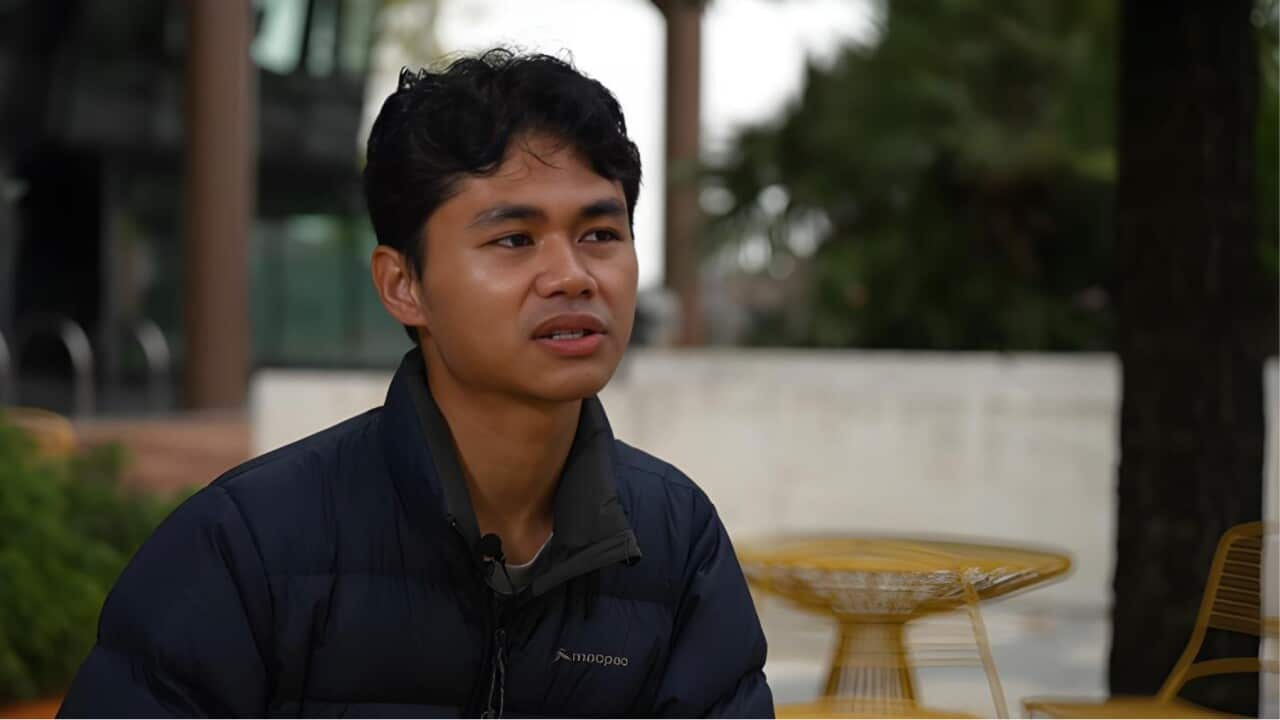TRANSCRIPT
Kye is an asylum seeker from Indonesia.
Thousands of kilometres away from the archipelago, in Melbourne, he's still finding a place to belong in Australia.
Attending a religious boarding school on the island of Java, Kye says his queer identity made him a target of bullying and sexual abuse.
"Most of my teenage years I had to kind of hide and suppress because there's no example of being gay and I also got called names and physically bullied."
He says the decision to seek asylum and start a new life in Australia, is not one he took lightly.
"It was not an easy process. To this day it's the most difficult decision, parting from my family and friends and everyone really."
Kye is among more than 400 LGBTIQ+ refugees and asylum seekers, being helped by outreach program 'Many Coloured Sky'.
Its founder and executive director is Ian Seal.
"They come from 39 different countries and have very diverse experiences, but they all face similar challenges in terms of settlement support, access to housing that is safe, access to health services and real challenges in terms of feeling comfortable and safe in the broader community."
But Mr Seal says the progress Australia has made in the LGBTIQ+ space is not equal, and multicultural communities face additional challenges.
"What we find is that many people feel forced to make a choice between their cultural community and perhaps their faith, and their identity as an LGBTIQA+ person. We don't believe that's a choice anyone should have to make. We believe everybody should feel safe to be who they are and welcome in their own family and their own community."
Many Coloured Sky is among 12 programs in Victoria to receive new funding to help serve diverse communities.
The $800,000 funding commitment was announced by Victorian Equality Minister, Harriet Shing.
"We know that LGBTIQA+ people experience discrimination and exclusion in a range of different ways. In addition to that, where we have multicultural or multi-faith community engagement, we know that reduces the level of distress and trauma experienced by LGBTIQA+ people and we can continue to gather the really important data that shows us where and how we need to provide support, engagement, funding and recognition."
But even as advocacy groups welcome the funding for outreach programs in regional and multicultural communities, a new report out today suggests discrimination is still rife.
Doctor Ryan Storr from Swinburne University is the report's lead author.
"Young people in particular have a 50/50 chance of going into a community sport club or space and witnessing homophobia. So the sample really shows that LGBTIQ communities aren't just from one box let's say. They're actually from intersectional backgrounds and have multiple lived experiences, and some of the quotes we had was 'some times and some days I'll experience racism, and some days I'll experience homophobia and it just depends what day and what space I'm going into that I'll have to contend with that."
With Kye's asylum application still ongoing, he has one simple hope for the future.
"I hope that I could just be like everyone else here, contributing as a citizen."













